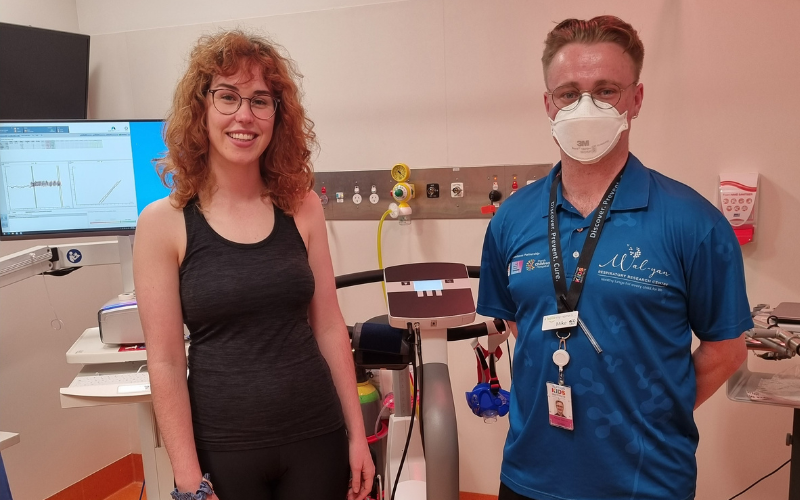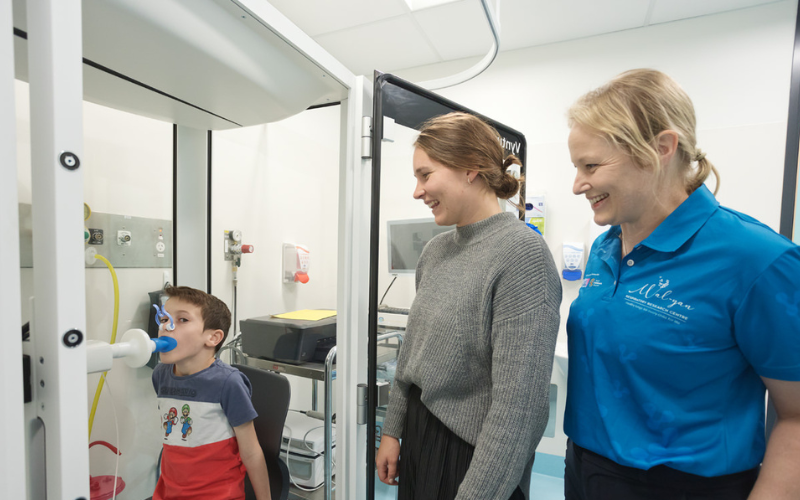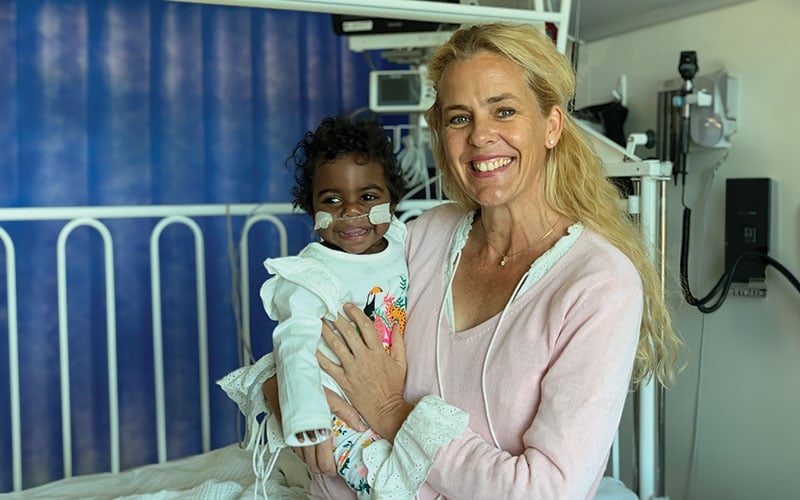Search
Showing results for "lung disease preterm"
The pathophysiology of BPD has changed in recent years as advances in neonatal care have led to increased survival of smaller, more preterm, infants who...
The aim of this review is to highlight the risk factors that may contribute to increased susceptibility to viral respiratory infections among preterm infants

Wal-yan Respiratory Research Centre researcher Ms Denby Evans has been awarded one of four inaugural fellowships supported by the State's Future Health Research and Innovation (FHRI) Fund and Brightspark Foundation, enabling her to further her research into ways to improve the lung health of people

Natasha, who is a participant in the West Australian Lung Health in Prematurity (WALHIP) study, this week became the first person to receive a lung health assessment using new state-of-the-art lung function testing equipment at Perth Children’s Hospital.

Analysis of worldwide research shows that despite advances in neonatal care, preterm babies have lower lung function throughout their life.
This research project will investigate the traits of preterm lung disease, looking into the long-term lung health of children born preterm, aiming to identify traits that could help guide better treatments in the future.

A The Kids Research Institute Australia study published in The Lancet Child & Adolescent Health has found that survivors of very preterm birth face declining lung function

A new study has found a common asthma drug is effective for some very premature babies who go on to suffer from lung complications.

Culturally secure intervention to facilitate medical follow up for Aboriginal children, after being hospitalised with chest infections, have proven to improve long-term lung health outcomes.
This paper is an introduction to a series of articles about improved measurement of lung function in patients with chronic lung disease.
